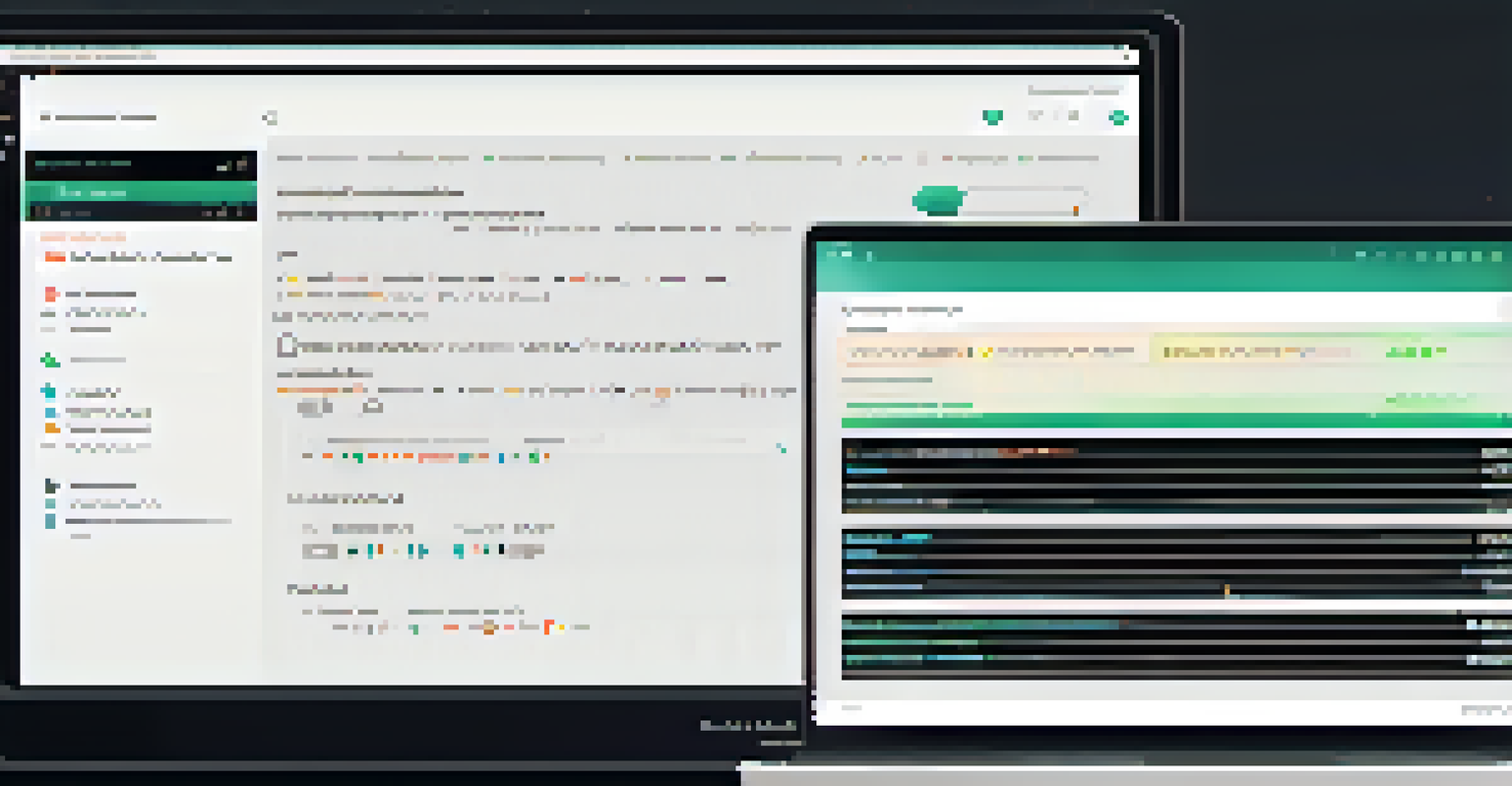Smart Contract Audit Tools: What to Use for Effective Auditing

Understanding Smart Contract Audits and Their Importance
Smart contracts are self-executing contracts with the terms directly written into code. They operate on blockchain networks, making them secure and efficient. However, their complexity and potential vulnerabilities necessitate thorough audits to ensure their reliability.
Smart contracts are like digital vending machines: they execute automatically when the right conditions are met, but if they’re not coded correctly, you might not get your money back.
Auditing a smart contract involves examining its code to identify bugs, security flaws, and logical errors that could result in financial losses or breaches. This process is crucial because even minor mistakes can lead to significant consequences, including loss of funds or compromised data.
By conducting regular audits, developers can build trust with users and investors, thereby enhancing the overall reputation of their projects. A well-audited smart contract is a solid foundation for any blockchain application, ensuring it operates as intended.
Key Features to Look for in Audit Tools
When selecting smart contract audit tools, it's important to consider features that enhance security and efficiency. Look for tools that offer automated vulnerability detection, comprehensive reporting, and support for multiple programming languages used in smart contract development.

User-friendliness is also vital; tools should provide clear interfaces that allow developers to easily navigate through the auditing process. A good tool will also offer detailed documentation and customer support to assist users in understanding the results.
Importance of Smart Contract Audits
Thorough audits are essential to identify vulnerabilities in smart contracts to prevent financial losses and ensure reliability.
Integration capabilities with existing development environments can streamline the auditing process. This allows teams to easily incorporate audits into their workflow, making it simpler to ensure code quality and security without disrupting their regular operations.
Popular Smart Contract Audit Tools on the Market
There are several reputable smart contract audit tools available that cater to various needs. Tools like MythX and Slither are well-known for their robust analysis capabilities, helping developers identify vulnerabilities early in the development process.
In the world of blockchain, security is not a feature; it’s a necessity. A single vulnerability can lead to catastrophic losses.
Another popular option is Oyente, which focuses on formal verification and can help ensure that the smart contracts behave as intended. Each of these tools has its unique strengths, making it important for developers to evaluate their specific requirements.
Additionally, for more comprehensive audits, platforms like ConsenSys Diligence provide both automated tools and expert manual audits. This combination ensures that the audit is thorough and covers aspects that automated tools might miss.
The Role of Manual Audits in Enhancing Tool Effectiveness
While automated tools are valuable, they should not replace manual audits. Human auditors bring experience and intuition to the process, often spotting issues that tools might overlook. This is particularly important in complex contracts where nuanced understanding is required.
A manual audit involves a thorough review of the smart contract's code by security experts who can assess the overall logic and flow. Their insights can provide a different perspective, adding an extra layer of security to the auditing process.
Combining Tools with Manual Audits
Integrating automated tools with manual audits enhances security by leveraging both technology and human expertise.
Combining both automated tools and manual audits creates a more robust auditing strategy, ensuring that smart contracts are resilient against potential exploits and vulnerabilities. This dual approach reinforces the security of blockchain applications.
Integrating Audit Tools into Your Development Workflow
To maximize the effectiveness of smart contract audit tools, it's essential to integrate them seamlessly into your development workflow. This means incorporating audits at various stages of development, rather than waiting until the end.
By regularly auditing code during development, teams can catch and fix vulnerabilities early, reducing the cost and time associated with later-stage audits. This proactive approach fosters a culture of security within the development team.
Additionally, utilizing Continuous Integration/Continuous Deployment (CI/CD) pipelines can automate the auditing process. This ensures that every code change is automatically checked, maintaining high standards of quality and security throughout the project.
Common Challenges in Smart Contract Auditing
Despite the importance of audits, several challenges can arise during the process. One common issue is the complexity of the code itself; as smart contracts become more intricate, identifying vulnerabilities can become increasingly difficult.
Moreover, the fast-paced nature of blockchain development can lead to rushed audits, which might compromise thoroughness. Balancing speed with the need for a comprehensive audit is crucial to avoid potential pitfalls.
Future Trends in Auditing Tools
Emerging technologies like AI and machine learning are set to revolutionize smart contract auditing, making it faster and more accurate.
Finally, staying updated with the latest threats and vulnerabilities in the blockchain space is essential. As new exploits are discovered, audit tools and methodologies must evolve to ensure they effectively address emerging risks.
Future Trends in Smart Contract Audit Tools
The landscape of smart contract auditing is continually evolving, driven by advancements in technology and the increasing complexity of blockchain projects. Future tools are expected to leverage artificial intelligence and machine learning to enhance their analytical capabilities.
These technologies can help automate the detection of vulnerabilities by learning from past audits and continuously improving their algorithms. As a result, developers can expect faster and more accurate assessments of their smart contracts.

Additionally, as the blockchain community grows, we may see more collaboration among developers and auditors. Sharing knowledge and best practices will likely lead to the development of more sophisticated tools that cater to the specific needs of the industry.